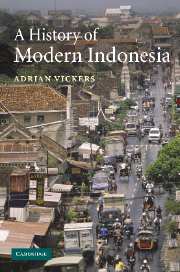Book contents
- Frontmatter
- Contents
- List of figures
- List of maps
- Acknowledgements
- A note on spelling, pronunciation and names
- Chronology
- Introduction
- 1 Our colonial soil
- 2 Cultures of the countryside
- 3 ‘To assail the colonial machine’
- 4 The Revolution
- 5 Living in the atomic age
- 6 From Old to New Orders
- 7 Terror and development in happy land
- 8 Age of globalisation, age of crisis
- Biographies of key figures
- Abbreviations and glossary
- Notes
- Bibliography
- Index
- LIST OF MODERN HISTORIES
2 - Cultures of the countryside
Published online by Cambridge University Press: 05 June 2012
- Frontmatter
- Contents
- List of figures
- List of maps
- Acknowledgements
- A note on spelling, pronunciation and names
- Chronology
- Introduction
- 1 Our colonial soil
- 2 Cultures of the countryside
- 3 ‘To assail the colonial machine’
- 4 The Revolution
- 5 Living in the atomic age
- 6 From Old to New Orders
- 7 Terror and development in happy land
- 8 Age of globalisation, age of crisis
- Biographies of key figures
- Abbreviations and glossary
- Notes
- Bibliography
- Index
- LIST OF MODERN HISTORIES
Summary
Blora, in the teak forests of northern Central Java, is an undistinguished country town located in a regency of the same name. It lies on the Lusi river, and besides teak, is known for its limestone cliffs. The dusty streets are lined with mainly typical Javanese houses, small wooden dwellings with a welcoming veranda leading on to a front room, where there are chairs ready to receive visitors. Generations in Blora have studied the Koran and other holy works of Islam, woven striped cloth, performed puppet theatre, danced, grown rice or gone off to the sugar mills to find work. The Dutch did not leave much there, a post office – later destroyed in the war – a pillar commemorating forty years of Queen Wilhelmina's rule, and the railway.
Yet despite its ordinariness Blora has had more than its share of fame and upheaval. In 1925, Pramoedya Ananta Toer, Indonesia's most famous novelist, was born there and before him, Raden Mas Tirto Adhi Suryo (1880–1918), an aristocrat who was to become the father of Indonesia's modern press, founder of the nationalist movement and hero of Pramoedya's novels describing colonial society. In Blora Regency is the grave of Indonesia's foremost feminist, Raden Ajeng Kartini, another member of the aristocracy.
- Type
- Chapter
- Information
- A History of Modern Indonesia , pp. 33 - 58Publisher: Cambridge University PressPrint publication year: 2005



